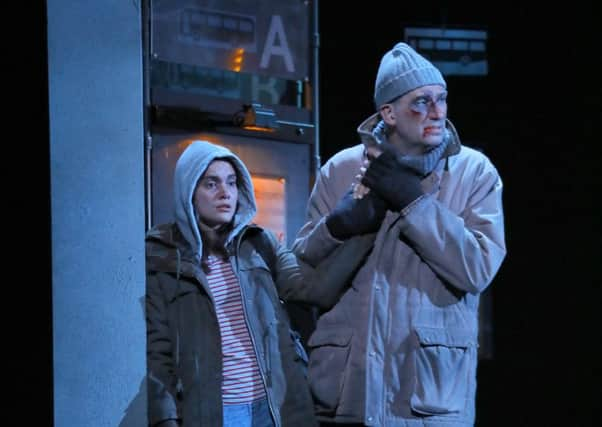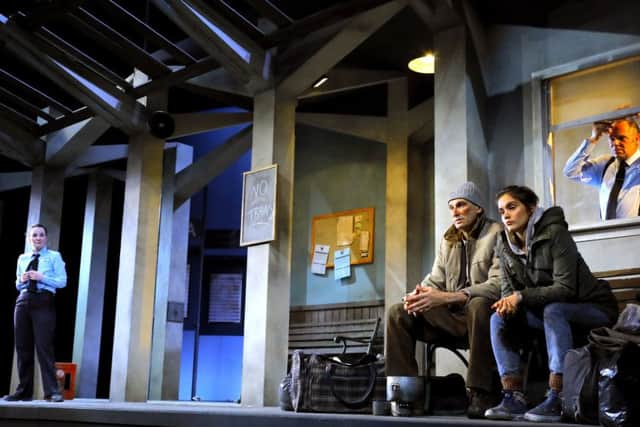Theatre review: Europe


Set in and around a small-town railway station somewhere in central Europe, it explores the plight of Sava and Katia, a father and daughter who have washed up there after fleeing from their own country; the play was written during the terrible 1990s war in former Yugoslavia, when waves of refugees were trying to make their way to safety elsewhere in Europe. The station has been shut down; trains no longer stop there, as they thunder through on the way from Vienna and Budapest to Paris and Amsterdam.
Yet still, Sava and Katia’s presence, making their temporary home on a disused bench, attracts hostility, first from the station- master Fret, and then from the local youths, who have just lost their jobs in a major factory closure, and are spoiling for a fight with anyone who looks like an outsider or enemy; and it also attracts interest, both from Fret’s junior colleague Adele, who is desperate to escape small-town life, and from Morocco, a semi-legal local businessman who senses the chance to make a fast buck.
Advertisement
Hide Ad

The play, in other words, contains within it every element of the current powder-keg of western politics, from migration, racial tensions and the rise of the far right to economic abandonment and desperation, and the growing culture-clash between cosmopolitans and those with more traditional attitudes; and it’s therefore more than disappointing to see John Durnin’s 2017 Pitlochry company make something of a hash of it, turning it into a dispiriting and often uninvolving spectacle, and a litany of misery that offers little real drama.
The first problem lies with the set, an entire railway platform with canopy, roof, large obscuring pillars and receding spaces, angled so that the railway line lies across the front of the stage, creating a deep separation between the actors and the audience; the set is also too specific to adapt convincingly to other scenes – near a bar in town, and in the flat Adele shares with her husband Berlin – and forces some important exchanges to be played so high up on the roof of the station that the actors’ voices are seriously muffled.
Beyond that, though, there’s a strong feeling that Durnin’s company never quite find the right tone for Greig’s drama, which is serious but also highly energised and often very funny; the jokes fall flat, the obscenity of the local boys’ language goes unleavened with humour, actors are often wedged into awkward corners of the set in ways that rob scenes of their kinetic energy.
There are two or three fine performances; Mark Faith is outstanding as Sava, gradually winning Fret over with his understanding of the great railway system that binds the continent together, Rebecca Elise is touchingly ardent as Adele, and Jack Wharrier is thoroughly impressive as Berlin, gradually morphing from ordinary small-town guy into serious neo-Nazi.


It takes some doing, though, to make a play so packed with contemporary relevance and urgent drama seem both dreary and uninteresting; and yet that’s what the Pitlochry company come close to achieving, in what’s perhaps the least successful production of this summer season.
JOYCE MCMILLAN
In repertoire at Pitlochry Festival Theatre until 13 October